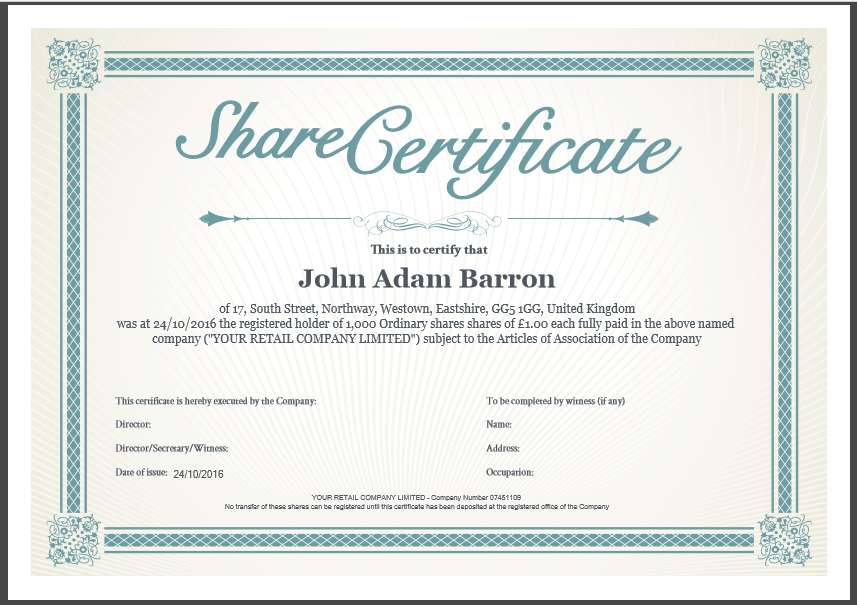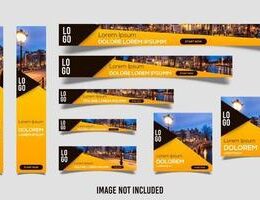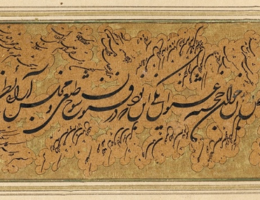IRAN ART EXHIBITION: DESIGNING STOCK CERTIFICATES HAS ROOTS IN HISTORY
What Is a Stock Certificate?
A stock certificate is a physical piece of paper that represents a shareholder’s ownership in a company. Stock certificates include information such as the number of shares owned, the date of purchase, an identification number, usually a corporate seal, and signatures.
The certificates are most often a bit bigger than a normal piece of paper, and most of them have intricate designs to discourage fraudulent replication and counterfeiting, which was a problem for much of the pre-internet history of investing in corporate stocks.
For the first 400-plus years of investing history, participating in an initial public offering (IPO) or buying stock often came with one of these physical stock certificates. The first stock certificate was issued in 1606 by the Dutch East India Company. It was worth 150 Dutch Guilder.
KEY TAKEAWAYS
• A stock certificate is a physical piece of paper that represents a shareholder’s ownership of a company.
• Stock certificates include information such as the number of shares owned, the date of purchase, an identification number, usually a corporate seal, and signatures.
• The first stock certificate was issued in 1606 by the Dutch East India Company.
• Today, securities are recorded almost exclusively electronically using a process known as book-entry form.
Understanding a Stock Certificate
Stocks are the foundation of nearly every portfolio, and they represent partial ownership in a company. Usually, the records of ownership are kept in electronic form, but you can request a paper version.
IRAN ART EXHIBITION: Each certificate starts as a standard design which might change throughout the years, then the date, identification number, and other information are added. Most signatures of executives are printed on the certificate, but some will be signed with a pen.
Today, securities are recorded almost exclusively electronically using a process known as book-entry form. Electronic methods eliminate the need to issue paper certificates to represent ownership.
With book-entry, ownership of securities is never physically transferred when securities are exchanged; rather, accounting entries are merely changed in the books of the commercial financial institutions where investors maintain accounts. This offers the benefits of any modern electronic record-keeping system.

Stock Certificates Before Electronic Record Keeping
Before electronic record-keeping was available, stock certificates were a unique piece of work in their own right. It was fairly common to receive a stock certificate adorned with fancy designs and ornate engravings, which were like artwork in and of themselves.
IRAN ART EXHIBITION: The Walt Disney Company issued its last paper stock certificates in 2013.
For instance, Disney Corporation would design their stock certificates with full-color illustrations of their popular characters. In turn, parents would often frame a certificate and hang it in a child’s room. In a sense, the complex designs found in many earlier stock certificates included what is known today as branding.
You may find an old stock certificate reproduction hanging in your local financial advisor’s office today. This signals their long-term approach and commitment to responsible capital stewardship.
Are Stock Certificates Worth Anything?
Yes, stock certificates do have value. If a stock certificate is of an existing company it represents ownership in that company. The value of the stock certificate will be the share price of the company. Old stock certificates of companies that do not exist anymore may also still have value. The company could have merged or been acquired with another company and the stock certificate will translate into ownership of the existing company. The value may not be the same as the company’s current share price, however.
Do You Get a Stock Certificate for Buying a Stock?
Today, you will typically not receive a stock certificate when you buy a stock; however, your broker will send you account statements of your portfolio that will list the stocks you own. You will also have access to specific documents of the company as one of its shareholders.
Do Stock Certificates Expire?
IRAN ART EXHIBITION: Stock certificates do not expire. If you have a stock certificate that is extremely old of a company that still exists, that stock certificate is still valid and represents ownership in that company. If, however, the company does not exist, then depending on what happened to the company will determine the value of the stock certificate. If the company merged with another company then the stock certificate may represent a certain value in the current company. If the company closed due to bankruptcy, then most likely the stock certificate will have no value.






